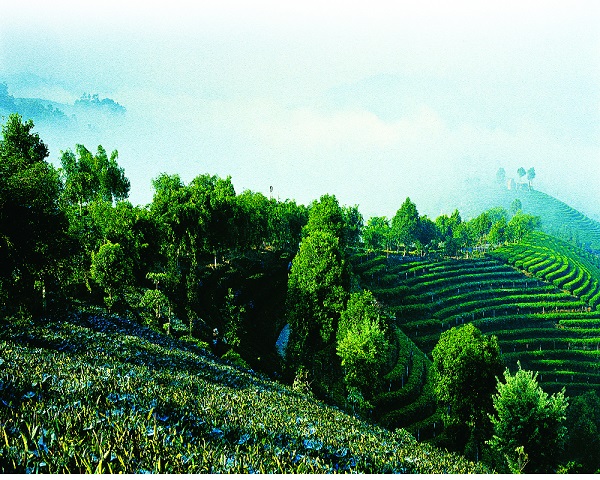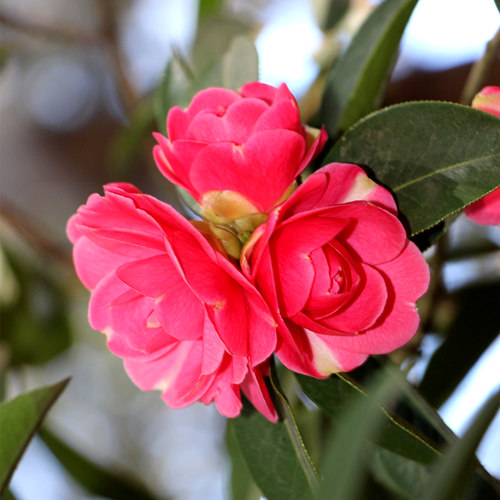
Detailed Introduction to Local Dishes of Jinning District
Jinning (south of Kunming, around the Dianchi basin) combines lake-and-field produce, plateau crops and rich wild-food traditions. Local food highlights fresh water produce from nearby Dianchi, abundant wild mushrooms and herbs from surrounding hills, rice-and-glutinous-rice products, and time-honoured preserved specialties (braised/ cured meats). Jinning’s food culture mixes rural farmhouse cooking and market snacks with a few celebrated local signature items that visitors hunt for.
Staple ingredients & flavour profile
Staples: rice and glutinous rice (local sticky-rice products), rice-noodles (米线) and erkuai/饵块 (rice cakes).
Protein & preserves: braised/cured duck (卤鸭), salted and smoked meats used as bases for soups and stir-fries.
Wild & seasonal: an important local theme — wild mushrooms, bamboo shoots, wild greens and freshwater fish from the Dianchi area appear often on menus.
Taste: earthy umami (mushrooms, ham), mild sour/savoury condiments, light stir-frying and clear broths; street snacks lean sweet or fried/crispy.
Signature dishes of Jinning (what locals recommend)
1. Kunyang / Jinning Braised Duck (昆阳/晋宁卤鸭)
A century-old local specialty — whole or portioned duck marinated and slow-braised in a fragrant spice stock, then served sliced. It’s an iconic Jinning flavor and often appears in local food features and festivals. Expect aromatic soy-spice notes and tender meat.
2. Tofu Banquet (豆腐宴)
Jinning is known for tofu preparations presented as multi-course ‘tofu banquets’—from chilled tofu salads to steamed, fried and braised tofu dishes—showing the ingredient’s versatility in local farmhouse cuisine. This is often a seasonal farmhouse or restaurant feature.
3. Wild-Mushroom Dishes & “Mushroom Feast” (野生菌 / 菌子宴)
In mushroom season (summer → early autumn) local restaurants and country inns run mushroom menus: stir-fried mixes, mushroom hotpots and simple garlic-wok dishes that showcase porcini-family and other wild species. Jinning’s restaurants advertise mushroom feasts during harvest months.
4. Claypot / Earthen-pot Rice-Noodles (砂锅米线)
A homely comfort dish — rice-noodles cooked in a small claypot with stock, mushrooms, greens and occasionally preserved meat. It’s a warming local version of Yunnan’s famous rice-noodle culture.
5. Grilled / Fried Erkuai (烧饵块 / 煎饵块)
Erkuai (local rice cake) is fried, grilled or stir-fried with sweet or savoury toppings. In Jinning you’ll find stalls selling freshly grilled erkuai—crispy outside, chewy inside—served with sugar, sesame or savoury condiments. Short video clips from local markets show this as a popular street snack.
6. Local freshwater specialties (滇池鱼类、小鱼干与腌制鱼)
Dianchi area fish (local carp species, small freshwater fish) are used in fried, braised or salted forms; they appear in rustic village menus and wet-market specials when in season.
7. Dinging candy / “Ding-Ding” sugar (叮叮糖) & regional sweets
Local traditional sweets — for example the playful “叮叮糖” (a local crunchy candy that makes a ringing sound when tapped) — are part of Jinning’s small-food heritage and often sold at markets and festivals.
Street food & snacks to hunt for
Grilled erkuai (烧饵块) — morning/evening stalls.
Cold / mixed rice-noodle bowls (凉拌米线) — light, tangy noodle salads.
Small braised parts of duck or poultry sold by market vendors.
Seasonal mushroom fritters / stir-fries from mushroom vendors and farms.
Seasonal highlights — when to eat what
Spring: bamboo shoots and freshly foraged greens.
Summer → early autumn: wild mushroom season — this is the peak time for mushroom feasts. Don’t miss simple garlic-stir mushrooms or mushroom hotpots.
Autumn / harvest: braised duck and preserved meats are at their best; sticky-rice and sweet rice cakes appear in local fairs.
Winter: claypot noodles, rich broths and roasted / braised meats.
Eating culture & etiquette in Jinning
Family & communal dining: like much of Yunnan, dishes are shared; order a few small plates and one larger “centerpiece” (e.g., braised duck or tofu banquet).
Market tasting: morning markets and small food alleys are best for authentic snacks — try grilled erkuai and local pickles.
Mushrooms: only eat wild mushrooms at reputable stalls or restaurants — sellers will indicate species and provenance. Local restaurants run “菌子宴” with trustworth



